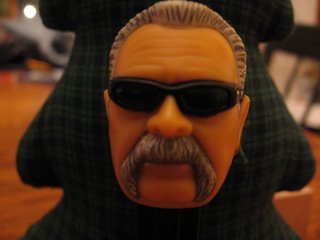“We have to stop speaking about the Earth being in need of healing. The Earth doesn’t need healing. We do.”
These words, from South African physician and naturalist Ian McCallum, close Daniel Goleman’s new book Ecological Intelligence: how Knowing the Hidden Impacts of What We Buy can Change Everything. Goleman’s book is an ambitious work that goes beyond the usual cries that humans are screwing up the planet and discusses how we can use market forces to change that behavior.
Not that Goleman ignores the fact that humans are screwing up the planet. (Or rather, screwing up the planet for humanity, as with the opening quote.) He goes into great detail to show how those of us in the US continue to pollute the air, ground, water and our bodies, long after science has shown us to be doing great harm. The reason for this is threefold: 1) Industry doesn’t change its practices because it might not be profitable to do so; 2) Government doesn’t regulate change, because political elections are financed by Industry; and 3) Consumers don’t insist on changes because we aren’t aware of the harm we are doing.
To combat this, Goleman introduces the reader to the concept of “Radical Transparancy,” wherein a product’s devalue (i.e. the harm it can do) is as readily known as its value. Studies have shown that if consumers are aware of the social, environment and especially health impacts of a product, most will change their purchasing habits even if it means spending more to buy the better product.
To illustrate, Goleman tells the tale of trans fat, which under the label “shortening” was a staple of home and industrial food production for 100 years. However, when the Institute of Medicine and the Food and Drug Administration independently issued reports at the turn of the 21st century detailing the health risks associated with trans fat, public concern reached heightened levels. When the FDA issued labeling requirements indicating the level of trans fat in foods, the agency in effect issued the death knell. Trans fat has been almost completely eliminated from foods in the US, because informed consumers do not want to buy products containing trans fats.
Not all stories are as cut-and-dried as that of trans fat. In some cases the risks are less immediate (global warming), or less personal (worker treatment), or less obvious (tainted water supplies).
To fully understand these risks, we need to understand more than simply how a product is made and how it is disposed of. We also need to understand what impacts result from the production of components, and of the subcomponents, and so forth. We also need to understand the impacts of shipping, packaging, and how the product is used. This is called “Life Cycle Analysis,” a cradle-to-grave study of a product’s impact.
One such study was made by the folks at Proctor & Gamble, who discovered that the greatest impact from its production of Tide laundry detergent was in the way the product was used. More specifically, the energy required to heat the laundry water was greater than the impacts incurred in manufacturing and transporting the product. This inspired P&G to develop a detergent that is just as effective using cold water.
Goleman treats the reader to several such anecdotes, and highlights several companies in addition to Proctor and Gamble (like Interface and (gulp!) Wal Mart) that have taken it upon themselves to improve the impacts of their businesses. Goleman also discusses the way that the US Government’s loose approval guidelines, the phenomenon of Unintended Consequences, and the corporate practice of “Greenwashing,” make it more difficult for the consumer to fully understand the impact of their purchasing practices. Thus the need for Radical Transparency.
Ecological Intelligence does a thorough job of describing the perils that face the unwitting consumer in the United States, and how industry and government work in tandem to obfuscate those perils. The reader comes away understanding that the threats to our health, the environment, and the people in third-world countries are real and avoidable. Where the book falls somewhat short is in offering solutions. This is because the Radical Transparency industry is in its infancy. The resources available to the consumer are not easily accessed at the point of sale (or, more importantly, in the aisle when the shopper is making a decision). Those that do exist still have large gaps in compiling the massive amounts of data on all products available for sale in the US.
This is an important book, and perhaps the first step in bringing the need for Radical Transparency into the collective consciousness. I believe that the population of this country is grossly unaware of the true impact of the way that we live. With the government beholden to industries that are unwilling to make risky changes that might impact the bottom line, the impetus for change must come from the grassroots. I believe that an educated population will generate the force required to shift the markets. We just need the information.
The following web sites are referenced in Goleman’s book. They have their shortfalls, but begin to provide the information that will help us change the way business is done in the US.
http://www.goodguide.com/ to find safe, healthy and green products.
http://www.cosmeticsdatabase.com/ for Skin Deep, the Cosmetics Safety Database.
Labels: Book Review, Environment, politics, social comment









